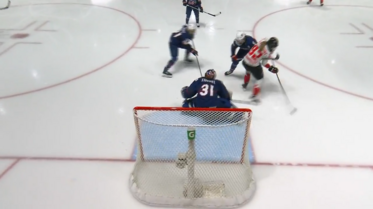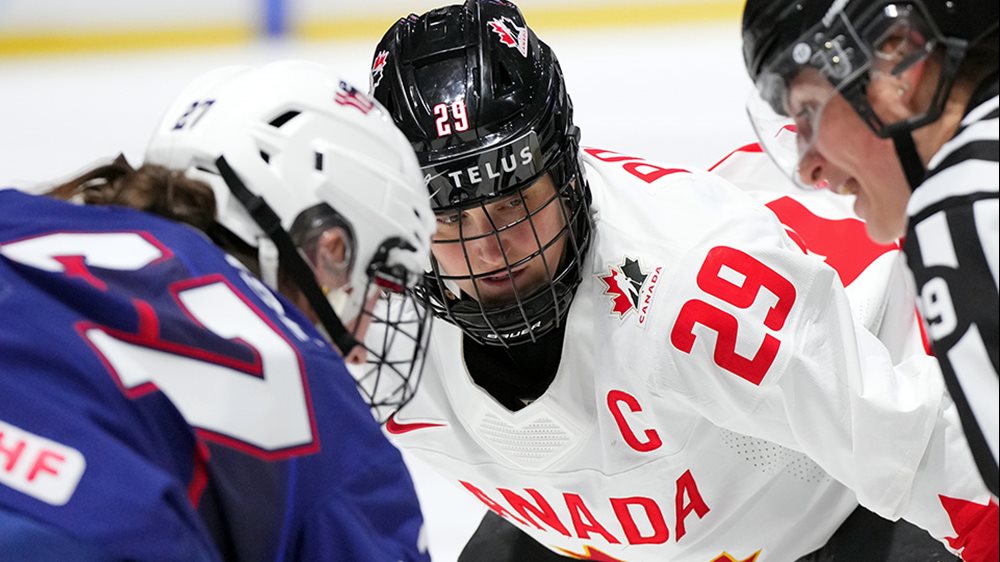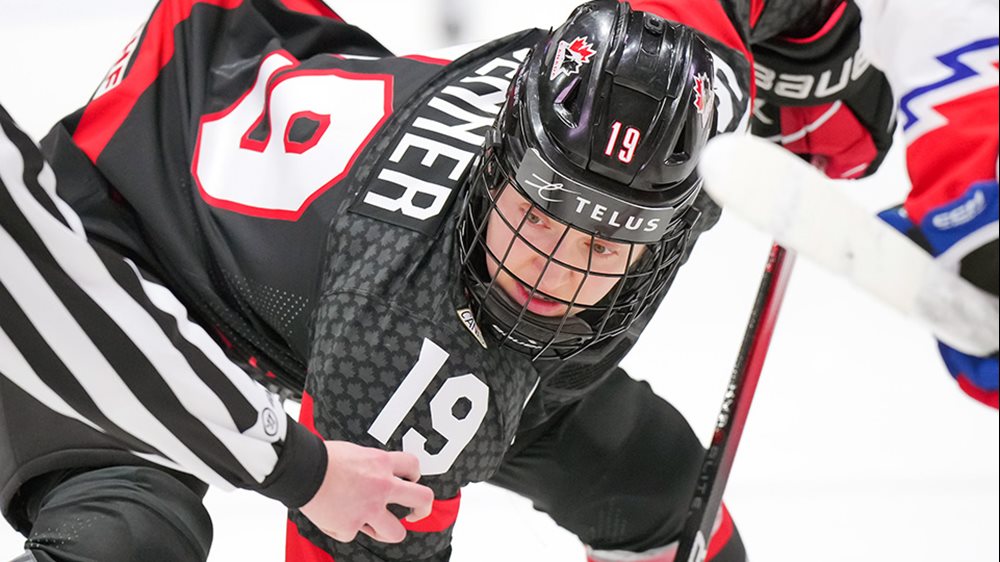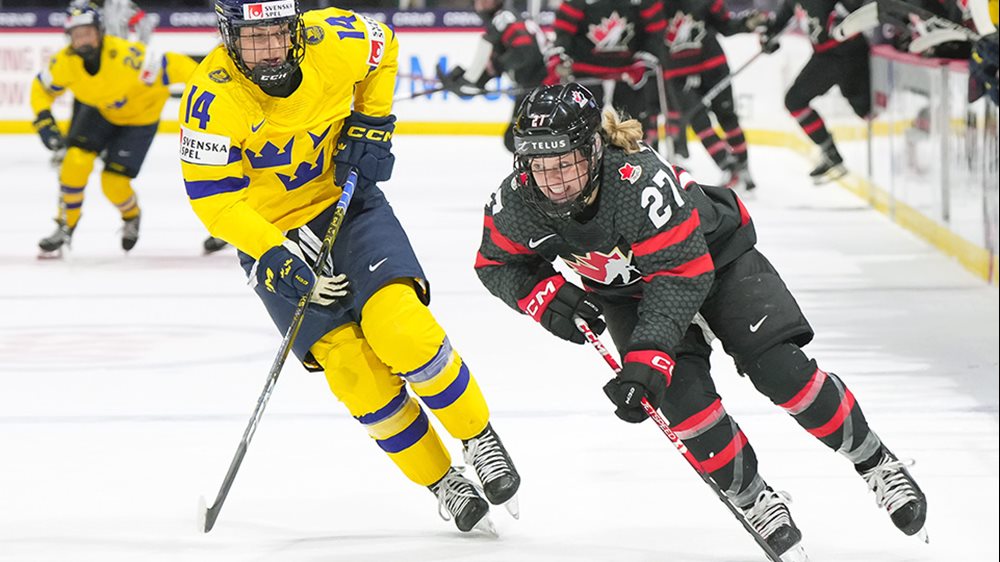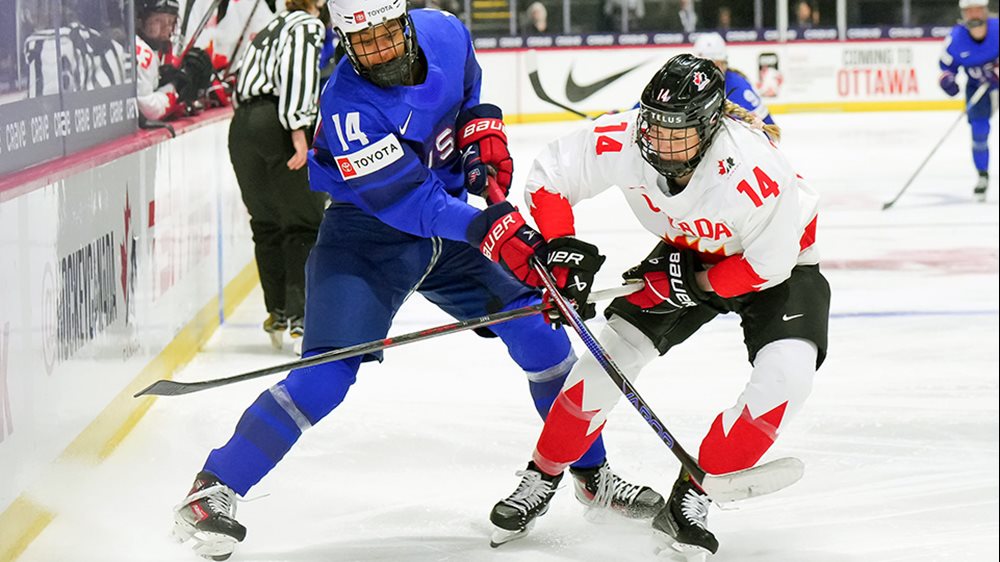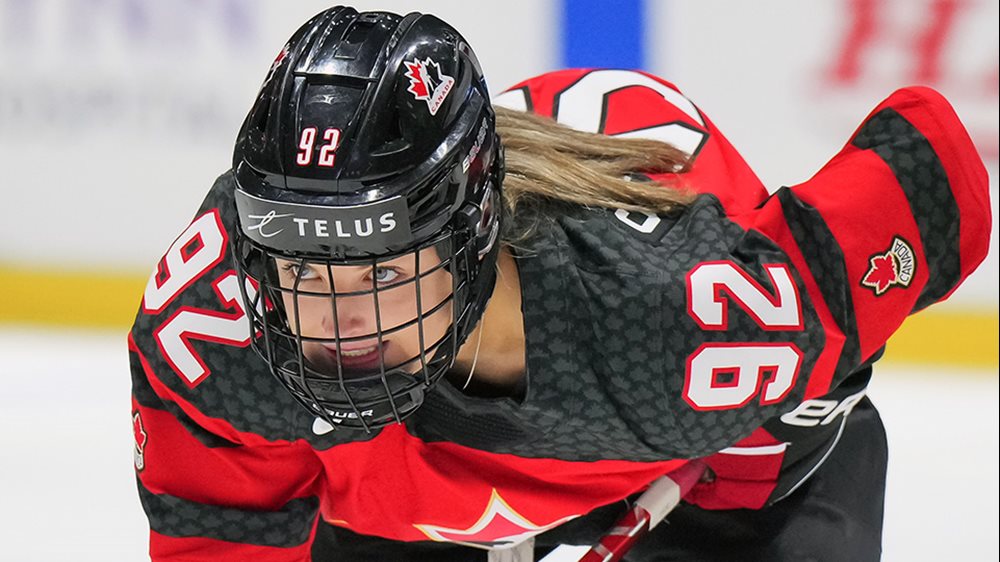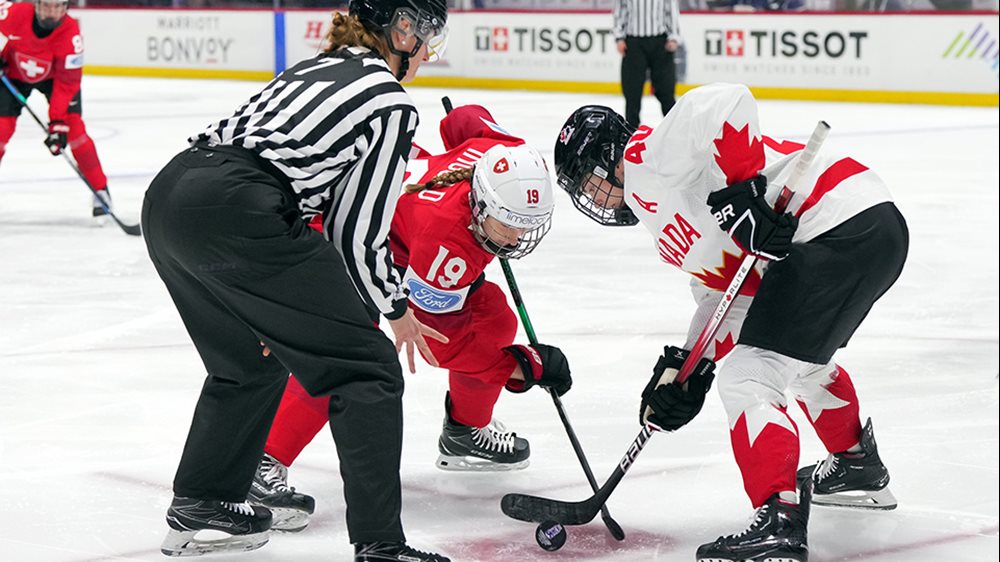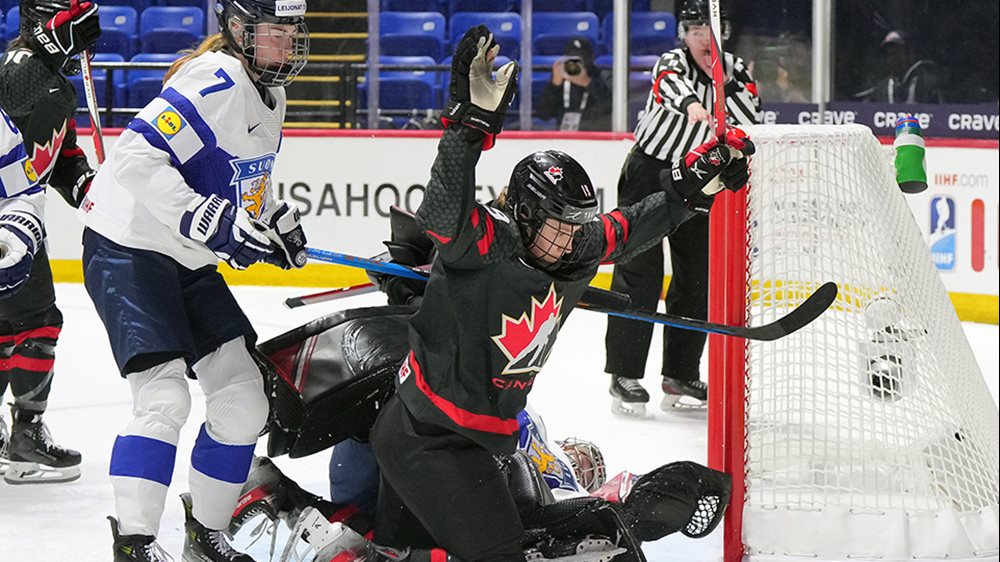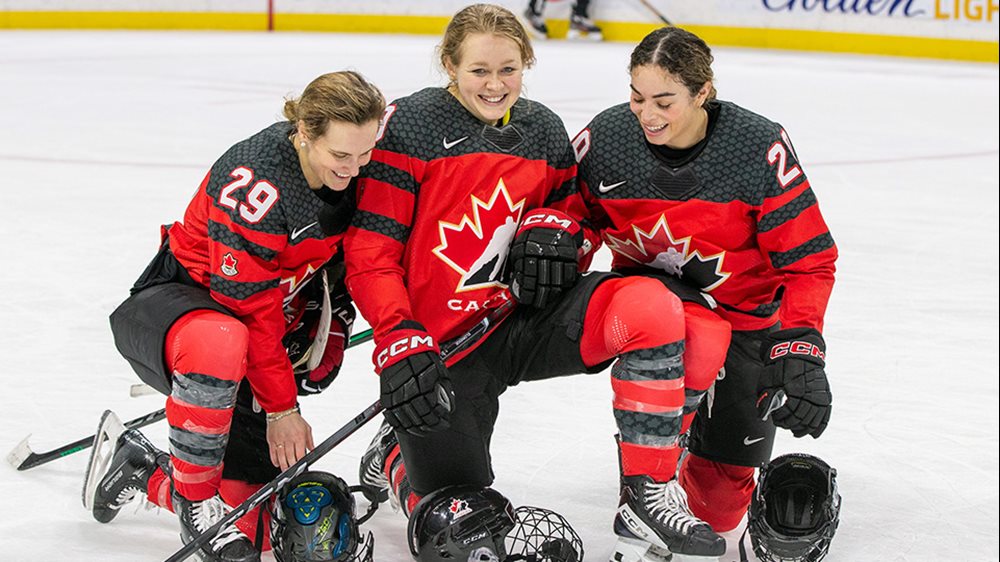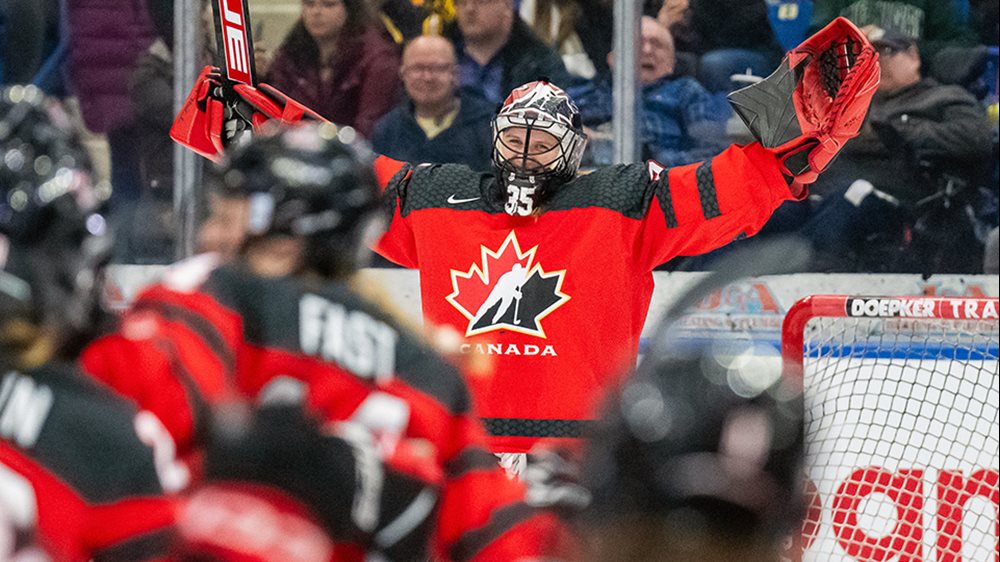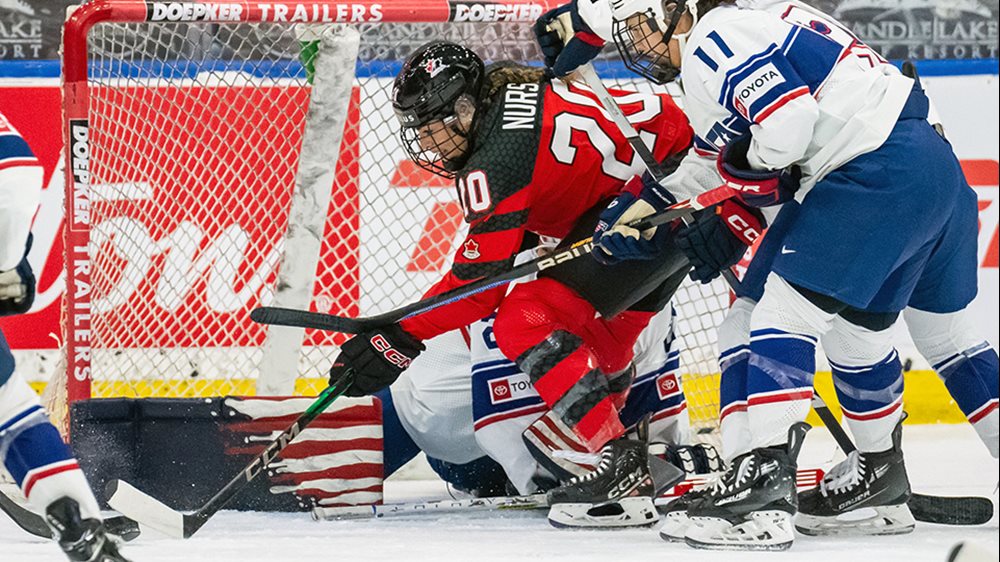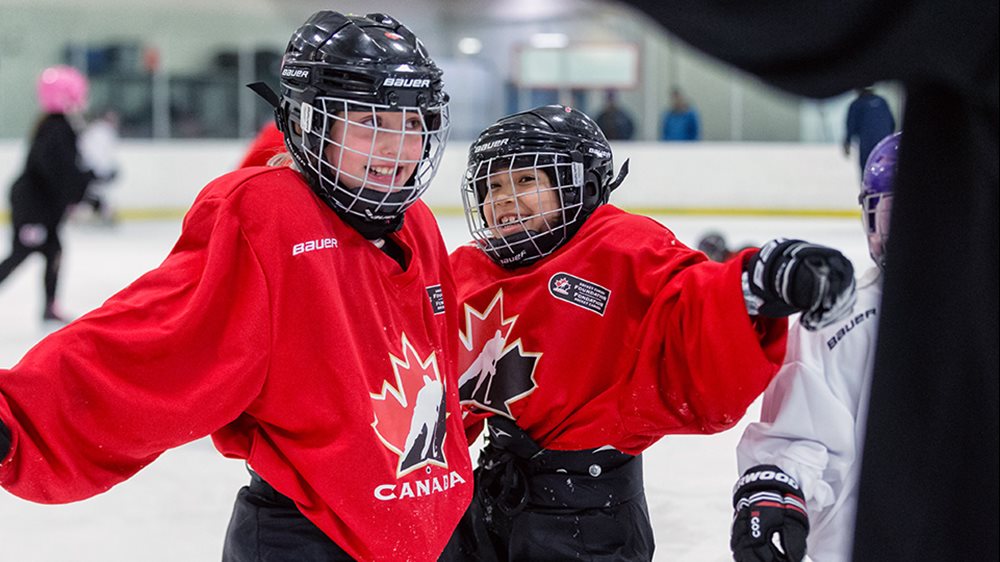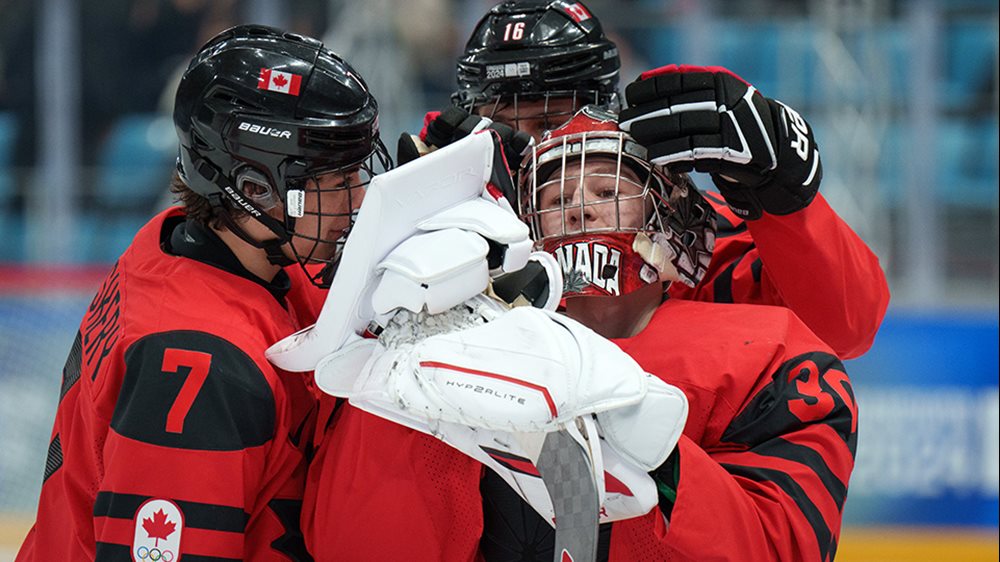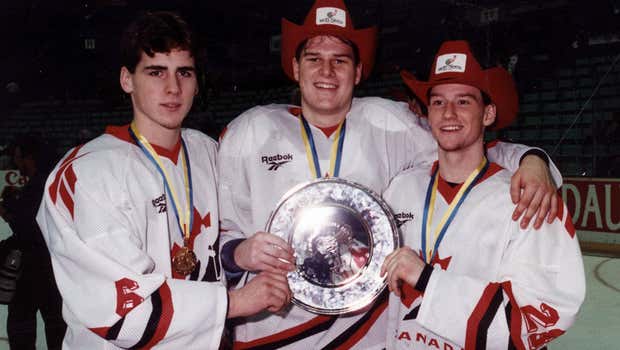
A welcomed homecoming
The only three-time World Juniors gold medallist, Jason Botterill is looking for a golden celebration as management at worlds
Returning to the Team Canada fold has been a sweet ride thus far for Jason Botterill.
More than 23 years after he became the first – and still only – player to win three gold medals at the World Juniors, the 43-year-old has helped build a Canadian team that is two wins away from gold at the 2019 IIHF World Championship.
The Buffalo Sabres general manager says it’s an honour to reunite with Hockey Canada as part of the management group for Canada’s National Men’s Team in Slovakia.
“It is an extremely special experience for me. One of the great byproducts that come from working for Hockey Canada is that you know you are always working with quality people. Working alongside Ron Hextall and Ron Francis has been a great learning experience for myself and has added another layer to how exciting it is to be a part of Team Canada.”
Botterill, Hextall, Francis and the Alain Vigneault-led coaching staff were keen to craft a roster featuring players with mobility and creativity, and who provide the intangibles that often make the difference between victory and defeat in big games.
Putting a premium on identifying players who impact the game in ways that don’t get reflected by the scoresheet is natural for Botterill as that was a role that he fulfilled as a player in his World Juniors experiences in 1994, 1995 and 1996.
“He had no problem being the ‘F1’ doing the gritty, dirty work and being okay without getting the credit,” says Marty Murray, who played with Botterill at the 1994 and 1995 tournaments. “That’s just who he was, and that made him a very important piece of the puzzle of the three World Juniors gold medals he earned.”
Botterill says getting an opportunity to make essential contributions to Team Canada were highly beneficial for his career, both short-term and long.
“It helped me as a player in my career to play in matches of that magnitude, and to receive the confidence that I can step up and perform when the pressure is on.”
Botterill handled different types of pressure during his World Juniors career. The 1994 and 1995 tournaments operated in a seven-game round-robin format, so it was crucial to be in top form for every single match. The 1996 tournament switched over to a medal-round format, which provided Botterill an opportunity to produce in one-game elimination tilts.
The 1995 championship in Red Deer, Alta., which marked the first occasion a Canadian team ever finished perfect (7-0), was his favourite experience out of the three. The Winnipeg product has fond memories of he and his teammates tapping into the spirit of Western Canada by donning cowboy hats and trench coats, and, of course, playing in “an electric atmosphere” in Red Deer, Edmonton and Calgary.
Murray, who also won a Calder Cup in 2001 with Botterill as members of the American Hockey League’s Saint John Flames, remembers getting to know his friend over those two World Juniors. The Top Forward recipient at the 1995 tournament says it was natural for Botterill to become a general manager.
“He always was an intelligent person who made great points whether he was talking about hockey or not. It certainly doesn’t surprise me that he’s leading the world championship team right now.”
However, according to Murray, Botterill’s cleverness was not on display during crib matches on the bus.
“You think with all his smarts that he would be able to figure out the game of crib, but that was one thing he wasn’t very good at,” says Murray with a laugh.
The crib games, crowds and the championship celebrations are all memories that Botterill and his teammates reminisce about when they have run into each other over the past two decades. He is very proud of contributing to Canada’s rich legacy, just like his younger sister Jennifer did with Canada’s National Women’s Team as a three-time Olympic gold medallist and five-time world champion.
Botterill cherishes how much the Team Canada experience today aligns with the Team Canada experience of the 1990s.
“The experience of Hockey Canada providing the resources to ensure the team can come together and have the best chance of success has not changed.
“Just like it was back then, the Team Canada experience is about players being passionate about representing their country and players being passionate about winning a gold medal for Canada.”
For more information: |
- <
- >

